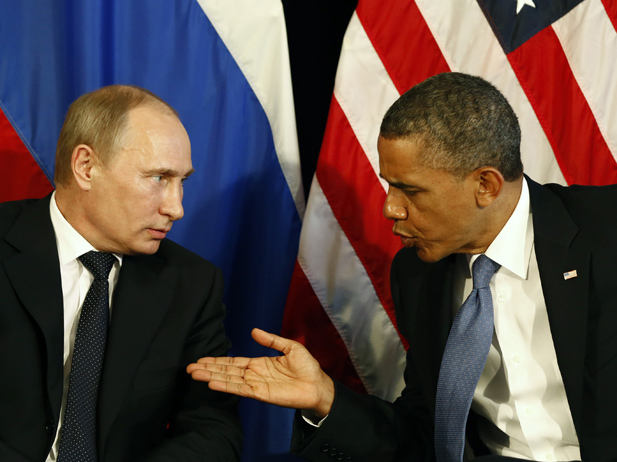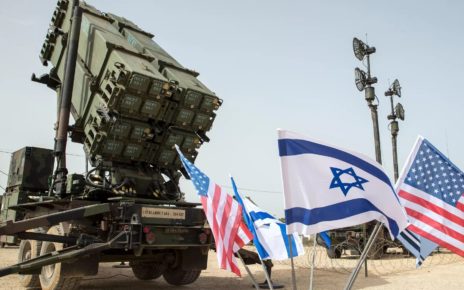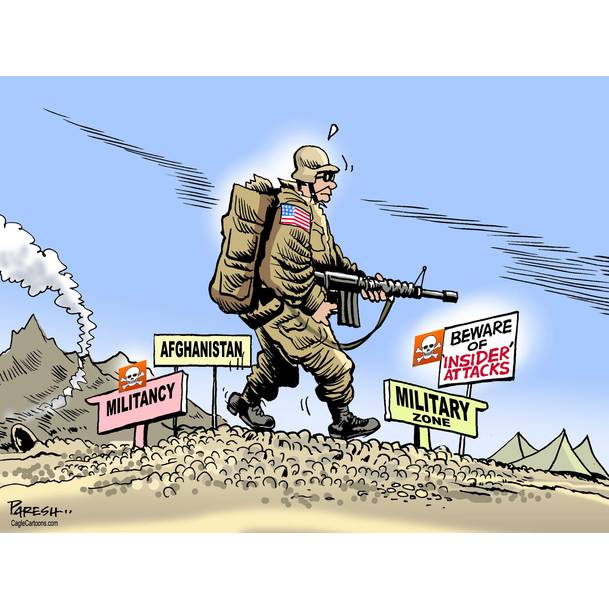More than twenty years after the fall of the Soviet Union, Russia and the US, along with other Western states, frequently find themselves in conflict with one another over an array of global issues. While the West and Russia cooperate on a few initiatives, such as counterterrorism and transnational crime, there are numerous issues in which their views diverge. Why is the relationship between Russia and the West so frigid? Put simply, the tension between Russia on one hand and the US and the West on the other can be ascribed to divergent interests in international affairs and Putin’s long-term aim to reclaim his country’s superpower status.
Russia’s Stake in Syria
On May 28, as a development of the bloody saga of the Syrian civil war, Russian Deputy Foreign Minister Sergei Rybakov announced that his country would provide Bashar al-Assad’s regime with S-300 anti-aircraft missiles on the grounds that this shipment would serve as a “stabilizing factor” to dissuade “some hotheads” from intervening. Yet, with Israel threatening to launch a strike at the shipment, one wonders to what extent Russia’s actions will stabilize the situation in the region. On Thursday, May 30, Bashar al-Assad made a television appearance to announce the arrival of the first shipment of S-300 from Russia. If Russia has indeed sent the S-300s, it would simply mark the most recent of a series of arms shipments that the country has made to Syria to strengthen the Assad regime since the outbreak of civil strife in the country in 2011. It will not be the last.
[captionpix align=”left” theme=”elegant” width=”300″ imgsrc=”http://brazilianbubble.com/wp-content/uploads/2012/06/assad-putin.jpg” captiontext=”Assad implied in a television address on Thursday, May 30, 2013, that Russia had indeed sent its first shipment of S-300 anti-aircraft missiles to Syria.”]
Despite recent overtures to resolve the Syrian crisis, Russia considers Assad to stand for stability, and ultimately, for Russian interests. Even if the proposed conference organized by the US and Russia, dubbed “Geneva-II,” were to materialize this upcoming June, it will come to naught if Russia persists in supporting the Assad regime and if important actors, such as Iran, do not participate constructively. Following the last meeting of the international community on the issue in Geneva (June 30, 2012), the bloodshed has only increased. It will take a grave blunder or miscalculation on the part of the Syrian government for Russia to forfeit its commitment to shore up the Assad regime.
According to Janice Stein, the Director of the Munk School of Global Affairs, one must consider Russian interests in the Middle East from a historical perspective. The Middle East comprised the Soviet Union’s “backyard,” and it remains so in contemporary Russian strategic thinking. Where the US and the West employ humanitarian discourse in condemning Assad, Putin views Syria as yet another arena of US-Russian geopolitical competition. Syria constitutes a crucial Russian interest in the Middle East because it is the only remaining strategic alliance it has in the region (not to mention that Assad’s Syria is a loyal customer for Russian arms). Unless there is a radical deterioration of this relationship, Russia will persist in shoring up the Assad regime both through diplomatic and military channels.
Spy vs. Spy and the Illusion of “Reset”
Shortly after Secretary of State Kerry’s meeting with Foreign Minister Lavrov, the US faced a highly publicized blunder, in which third secretary Ryan Fogle, of the US embassy in Moscow, was accused by the Russian counterintelligence agency, the FSB, of acting as a CIA spy. This event is one of many that demonstrate that despite official overtures of the Obama administration to “reset” and strengthen ties with Moscow, the relationship is still characterized by mutual distrust, persistent disagreement on international issues, and the Russian view that the two states pursue irreconcilably opposed interests.
[captionpix align=”left” theme=”elegant” width=”300″ imgsrc=”http://rt.com/files/news/1f/14/e0/00/27.si.jpg” captiontext=”Despite the Obama administration’s attempt to reset and strengthen ties with Russia, the relationship between the two countries remains strained, particularly over issues like Syria and espionage.” ]
Thus far, the “reset” policy with Russia has been unsuccessful. The US and Russia continue to mount numerous and widespread spying operations against one another. Contrary to the impression that was given by the comical spy kit of Ryan Fogle, flaunted proudly on Russian state television, these intelligence operations are of the highest sophistication, especially when one considers that the two states are among the top ten sources of cyber attacks. Additionally, the US and Russia routinely diverge in opinion over critical international issues such as energy politics, Iranian nuclear proliferation, NATO ballistic missile bases, protection of the rights of minorities and dissident civil society, and the Syrian civil war. Russia views its security as being threatened by NATO encroachments into its “near abroad,” and acts in international affairs to promote multipolarity at the expense of the preeminence of the US. The points of division definitely surpass those of cooperation, both in terms of number and strategic importance.
An End in Sight?
The Syrian crisis is the most notable of a series of recent conflicts between Russia and the West. The resolution of civil strife and the future of Syria are contingent upon the dysfunctional relationship that has developed between the US and the West on one hand and Russia on the other. One can only hope that for the sake of the Syrian people as well as for the stability and security of the region, the two sides elect increased international cooperation as opposed to the deadlock that has contributed to prolonging the bloodshed and chaos in Syria thus far.




